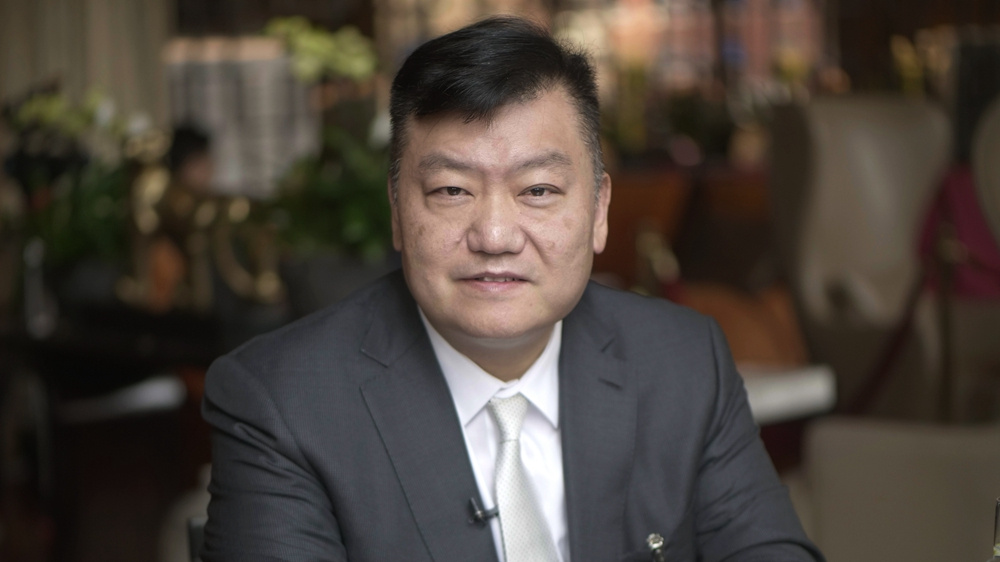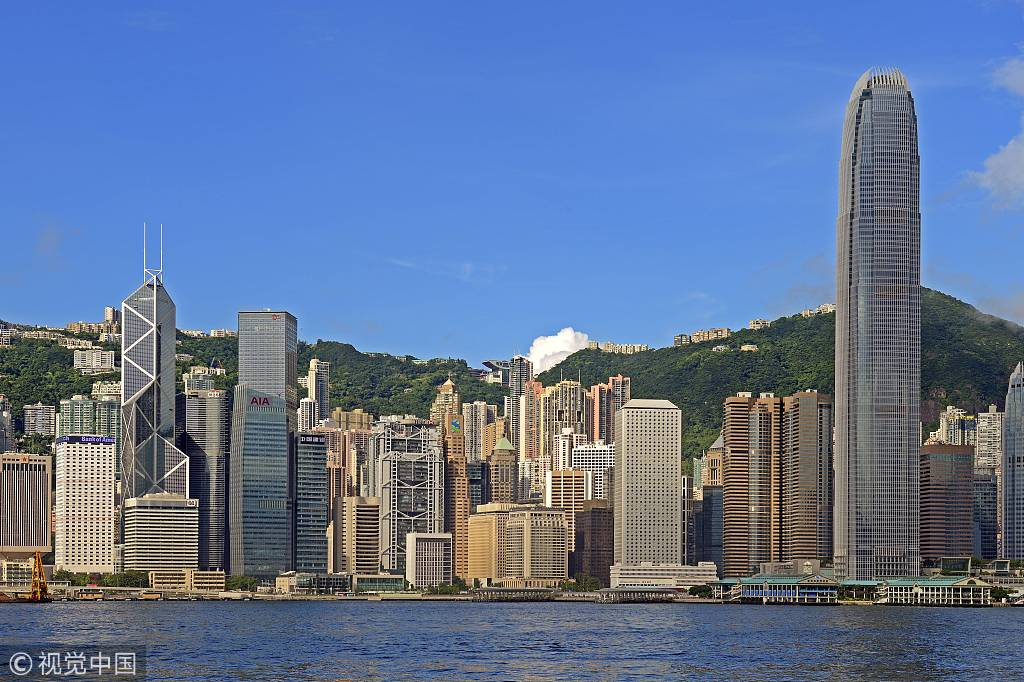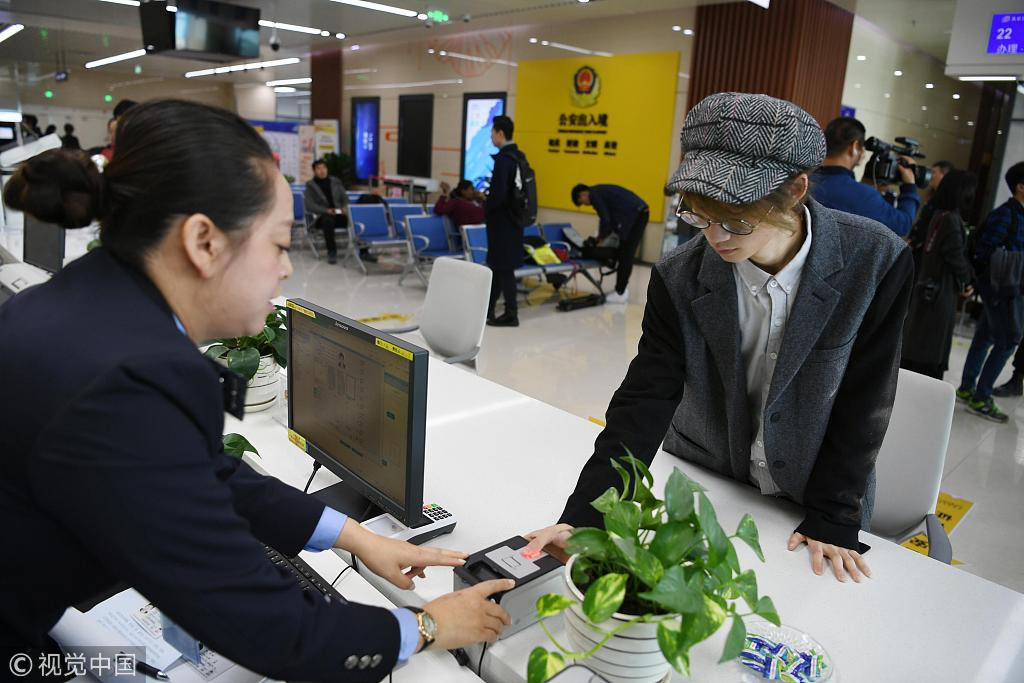
Domestic
19:24, 08-Mar-2019
CPPCC member urges down-to-earth measures to bring HK and mainland closer
Updated
19:48, 08-Mar-2019
By Zhou Jingnan
03:34

The future of the Guangdong-Hong Kong-Macao Greater Bay Area has been a hot topic at the ongoing Two Sessions.
"In developing the Guangdong-Hong Kong-Macao Greater Bay Area, we will work to ensure the implementation of plans, achieving compatibility between each region's rules, and facilitating flows of factors of production and the movement of people," Chinese Premier Li Keqiang noted in the Report on the Work of the Government on Tuesday during the opening ceremony for the second session of the 13th National People's Congress (NPC).
In mid-February, the Chinese State Council unveiled a blueprint for the Greater Bay Area, aiming to combine the three regions to turn it into one of the world's top bay areas and world-class city clusters.

NPC deputies and members of the national committee of the Chinese People's Political Consultative Conference (CPPCC) from the relevant regions are particularly eager to discuss this issue.
CGTN reporter Zhou Jingnan spoke to Woo Kim Kong (Woo), a member of the CPPCC National Committee and Life Honorary President of the Hong Kong Chiu Chow Chamber of Commerce, to get a closer look at how Hong Kong could further integrate with the mainland.
Below is a condensed version of the conversation.
CGTN: How do you see the opportunities brought about by the central government's blueprint for the development of the Guangdong-Hong Kong-Macao Greater Bay Area, and what specifically do you think HK could add to the area's development?
Woo: The area, we call it nine plus two, meaning Hong Kong (Special Administrative Region), Macao (Special Administrative Region) and nine cities (in Guangdong Province). We see each region now has a more clear-cut and well-defined role. As for Hong Kong, besides its long history of being a financial center for raising funds and venture capital, it will take on the role of being a legal and arbitration center because of its well-accepted international legal system. It will also take on a new role as a technology and renovation center. Due to its having five universities that have been ranked in the world's top 100, it could provide a great support for talents in the technology field.

The waterfront of Hong Kong. /VCG Photo
The waterfront of Hong Kong. /VCG Photo
CGTN: One of your proposals this year calls for more measures to facilitate Hong Kong and Macao residents being able to live in the mainland. What needs to be done to achieve that goal?
Woo: As for the first stage, it is to have people move willingly among these area. As for Hong Kong and Macao residents, they need an ID that will enable them to move easily, and we have also been discussing about (allowing them) easier (access to online payment systems like) Wechat pay and Alipay, and making the opening of bank accounts easier (in the mainland), or even in Hong Kong and Macao.
CGTN: Right now, what kinds of difficulties are they facing (in terms of bank account opening)?
Woo: Well, they need to go to Shenzhen, find a bank that can accept them. What's more, they need to provide documents such as a work permit or a residential approval in the mainland. What we propose now is to have the banks in Hong Kong which have branches in the mainland to prove the identity and address (of the applicants), which will be a starting point to facilitate the financial integration of Hong Kong and Macao residents (with the mainland).

A student from Hong Kong who studies in Jilin University applies for her mainland residence permit with the fast-track system in Changchun, Jilin Province on October 19, 2018. /VCG Photo
A student from Hong Kong who studies in Jilin University applies for her mainland residence permit with the fast-track system in Changchun, Jilin Province on October 19, 2018. /VCG Photo
CGTN: Another proposal of yours this year is about increasing exchanges between youth from Hong Kong and the mainland. What makes you think that is particularly important?
Woo: To make the country strong and make things work, the hearts need to be aligned, and the thoughts need to have the like-mindedness among the citizens. As for Hong Kong, it was under a different ruling with a different political system for so long, it takes time to blend in. I think the exchange of youth will facilitate the purpose I mentioned. (It can be done) through various measures, be them educational, technological, cultural or sports. (The measures can be) multi-faceted. I think that will increase the awareness of the "One Country, Two Systems" principle, and (nurture) a more patriotic feeling towards each other.
CGTN: What more suggestions do you have for bringing the youth in Hong Kong closer to their motherland?
Woo: The approach should be down-to-earth. (For instance,) encourage them to take the high-speed train from Hong Kong to the mainland, enable them to open a bank account in the mainland, allow them to use Wechat pay or Alipay (more easily) to do something enjoyable like shopping and going to the movies, and also let them make friends in the mainland, through recreational activities like cycling games, cultural exchange, or simply talking about Korean soap operas or culture… Make life simple and easy, that can be the first step, so that the young people are willing to move.

The opening ceremony of a youth football tournament in the Guangdong-Hong Kong-Macao Greater Bay Area is held in Guangzhou, Guangdong Province on August 20, 2018. /VCG Photo
The opening ceremony of a youth football tournament in the Guangdong-Hong Kong-Macao Greater Bay Area is held in Guangzhou, Guangdong Province on August 20, 2018. /VCG Photo
The further step would be for local governments, both at the provincial and the municipal or city levels, to set up a regular mechanism to facilitate the exchange of youth. Sometimes, seeing and experiencing is believing.
(Videographer: Zhang Wanbao; Video editor: Ge Ning)

SITEMAP
Copyright © 2018 CGTN. Beijing ICP prepared NO.16065310-3
Copyright © 2018 CGTN. Beijing ICP prepared NO.16065310-3